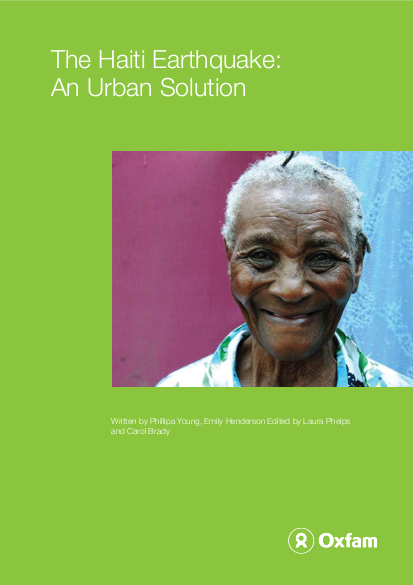
On 12th of January 2010, an earthquake measuring 7 on the Richter scale struck Haiti. Approximately 3.5 million people lived in areas directly affected by the earthquake. An estimated 220,000 people died during and immediately after the earthquake and a further 1.5 million people were displaced. The earthquake dramatically increased the levels of unemployment, with productive assets lost or damaged and infrastructure shattered. The earthquake resulted in a significant increase in household food insecurity and loss of livelihoods. As a result of the earthquake, poverty levels were estimated to have risen by 30-50% in Port au Prince (PaP) and by 80% in the commune of Carrefour. Across the city, people struggled to afford to eat, as food became less affordable and less accessible. Early assessments have indicated that people resorted to a range of coping strategies, from reducing the number of meals and borrowing money, to selling assets and engaging in sex work.
Resource collections
- Accountability to affected populations (AAP)
- UN Habitat - Urban Response Collection
- Urban Response - Urban Crisis Preparedness and Risk Reduction
- Urban Response Collection - Community Engagement and Social Cohesion
- Urban Response Collection - Economic Recovery
- Urban Response Collection - Environment and Climate Change
- Urban Response Collection - Housing, Land and Property
- Urban Response Collection - Urban Crisis Response, Recovery and Reconstruction
- Urban Response Collection - Urban Resilience